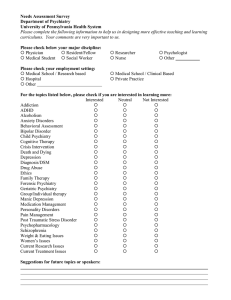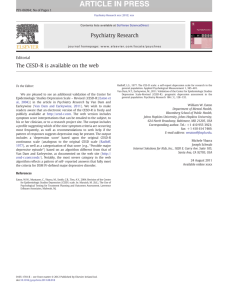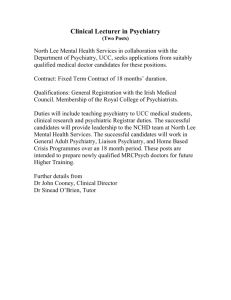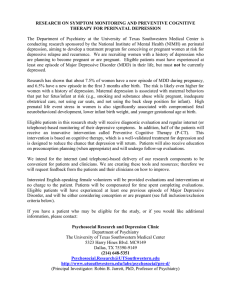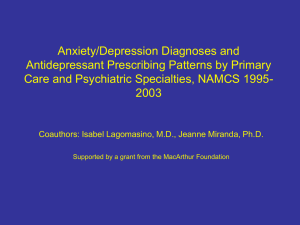Work Cited 1. Unutzer, J., et al., Collaborative Care Management
advertisement
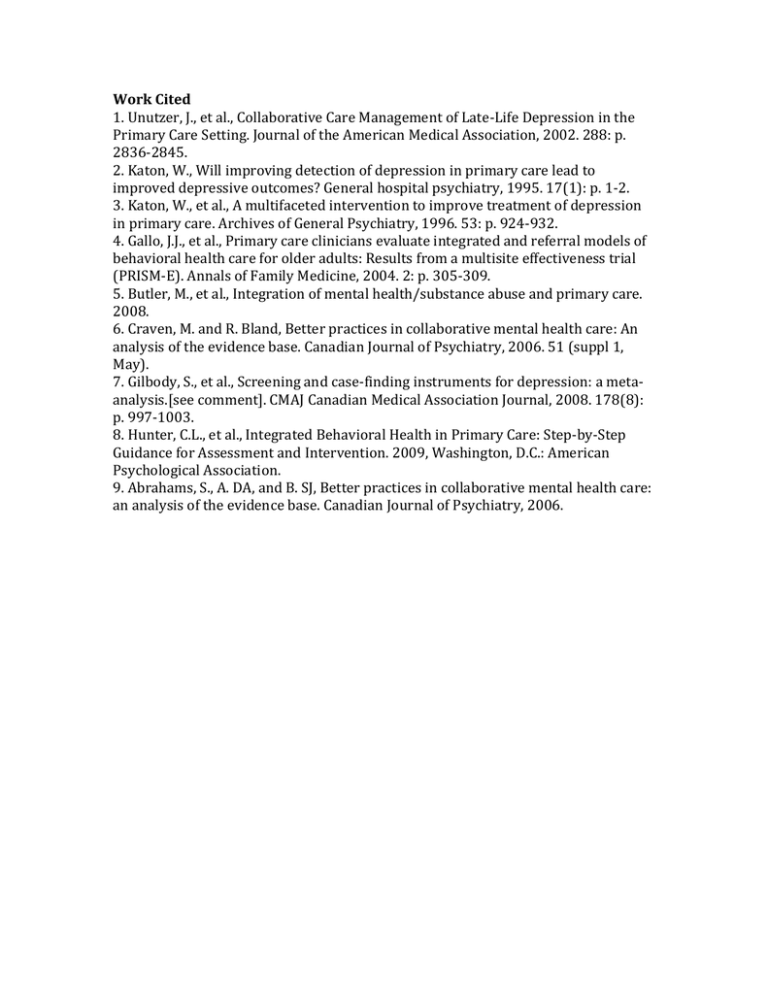
Work Cited 1. Unutzer, J., et al., Collaborative Care Management of Late-Life Depression in the Primary Care Setting. Journal of the American Medical Association, 2002. 288: p. 2836-2845. 2. Katon, W., Will improving detection of depression in primary care lead to improved depressive outcomes? General hospital psychiatry, 1995. 17(1): p. 1-2. 3. Katon, W., et al., A multifaceted intervention to improve treatment of depression in primary care. Archives of General Psychiatry, 1996. 53: p. 924-932. 4. Gallo, J.J., et al., Primary care clinicians evaluate integrated and referral models of behavioral health care for older adults: Results from a multisite effectiveness trial (PRISM-E). Annals of Family Medicine, 2004. 2: p. 305-309. 5. Butler, M., et al., Integration of mental health/substance abuse and primary care. 2008. 6. Craven, M. and R. Bland, Better practices in collaborative mental health care: An analysis of the evidence base. Canadian Journal of Psychiatry, 2006. 51 (suppl 1, May). 7. Gilbody, S., et al., Screening and case-finding instruments for depression: a metaanalysis.[see comment]. CMAJ Canadian Medical Association Journal, 2008. 178(8): p. 997-1003. 8. Hunter, C.L., et al., Integrated Behavioral Health in Primary Care: Step-by-Step Guidance for Assessment and Intervention. 2009, Washington, D.C.: American Psychological Association. 9. Abrahams, S., A. DA, and B. SJ, Better practices in collaborative mental health care: an analysis of the evidence base. Canadian Journal of Psychiatry, 2006.
